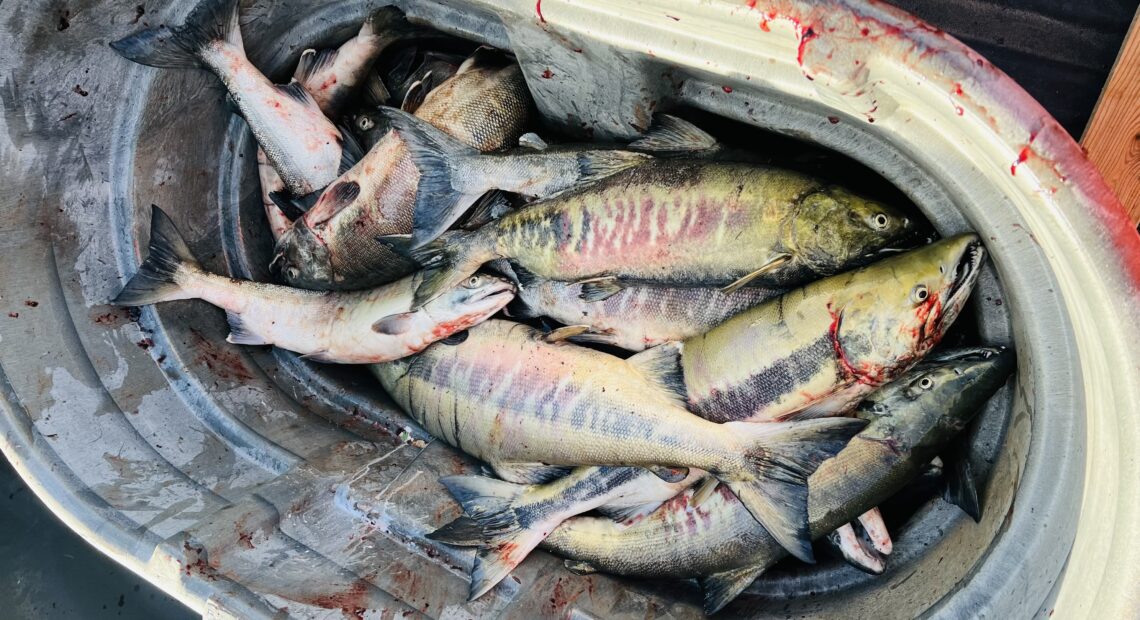
‘It just tastes like time’: Salmon are a sacred relative to the Nisqually tribe and Native Americans across the Northwest
Listen
(Runtime 3:54)
Read
On a tall bluff that overlooks the south Puget Sound in one direction and sparkling headlights on Interstate 5 in another, members of the Nisqually Indian Tribe are gathering for a Winter Moon Celebration on the soggy solstice.
These lands are part of the lush home of the Nisqually tribe.
In their creation story, salmon were the first to offer themselves to the people. But a contract was made: The people also must care for the salmon.
They celebrated the Native American New Year this month and the Nisqually also honored their sacred relationship with the fish.
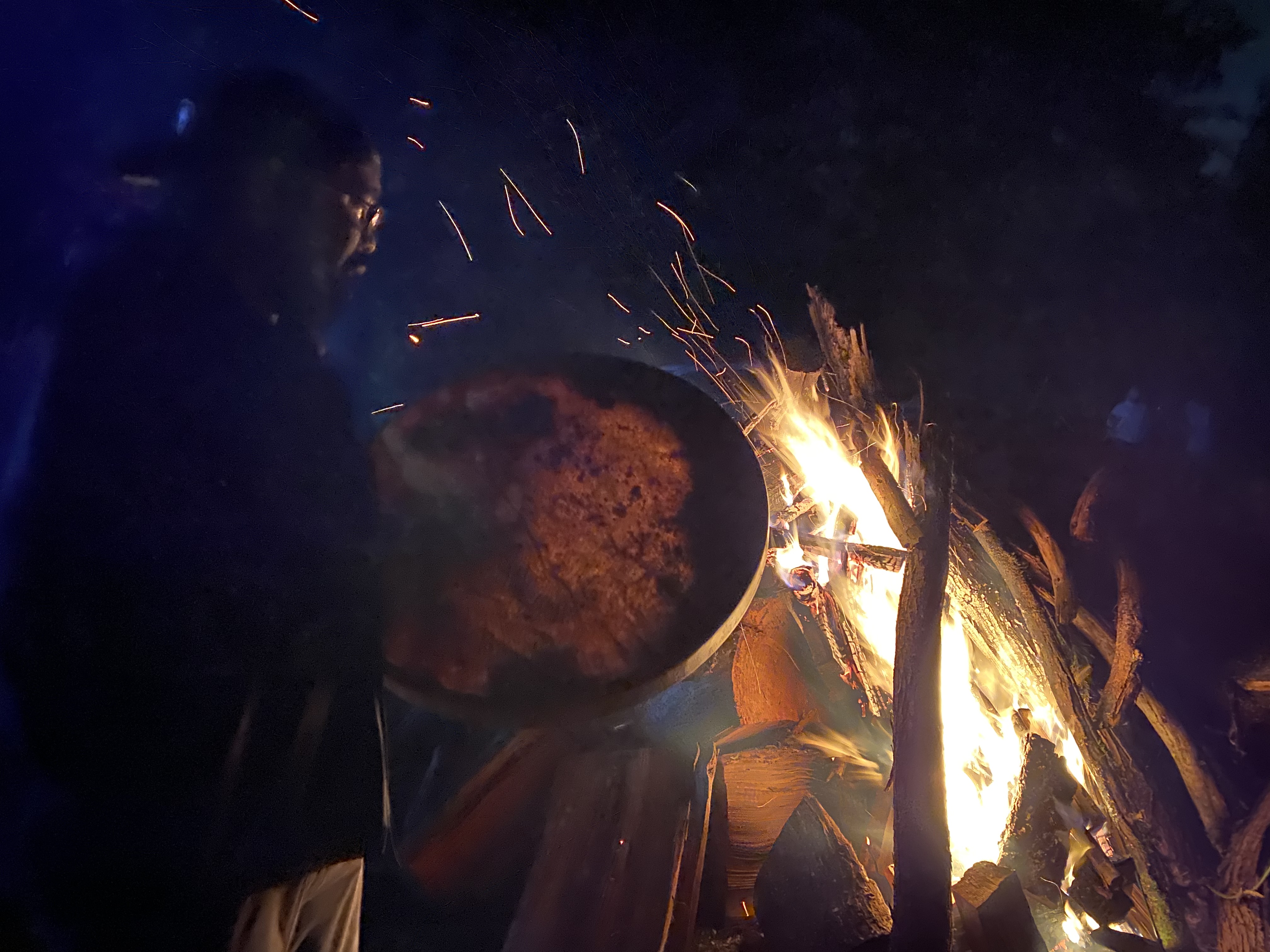
Yatsu-Ats “Joe” McCloud sings and drums by the bonfire at the Nisqually Culture Center during the Winter Moon Celebration on Winter Solstice. (Credit: Anna King / NWPB)
‘Grandma Moon’
The Winter Moon Celebration is marked with a bonfire for the community and traditional canoe songs punctuated with drumming.
The celebration is a time to be together to celebrate Mother Earth, and her time to sleep. The shortest day of the year. A time to rejoice in the Milky Way and feel the earth shift toward Spring, explained Joyce McCloud, a Nisqually elder.
It’s a time when families can come together, pray for what’s ahead. They gift fruit, candy and small handmade presents to each other – like fresh cedar wreaths to protect the home all year.
McCloud said this gathering is not about Christmas, it’s about earth, the stars and the moon.
“Grandma moon, we always called her Grandma Moon, cause she was overall caretaker of all life, of all life,” McCloud said. “Grandma Moon. So, when she’s full and abundant, that’s when Winter Solstice happens.”
Colonization, overfishing, logging, development, pollution and cut-off habitat have been hard on these ancient salmon runs.
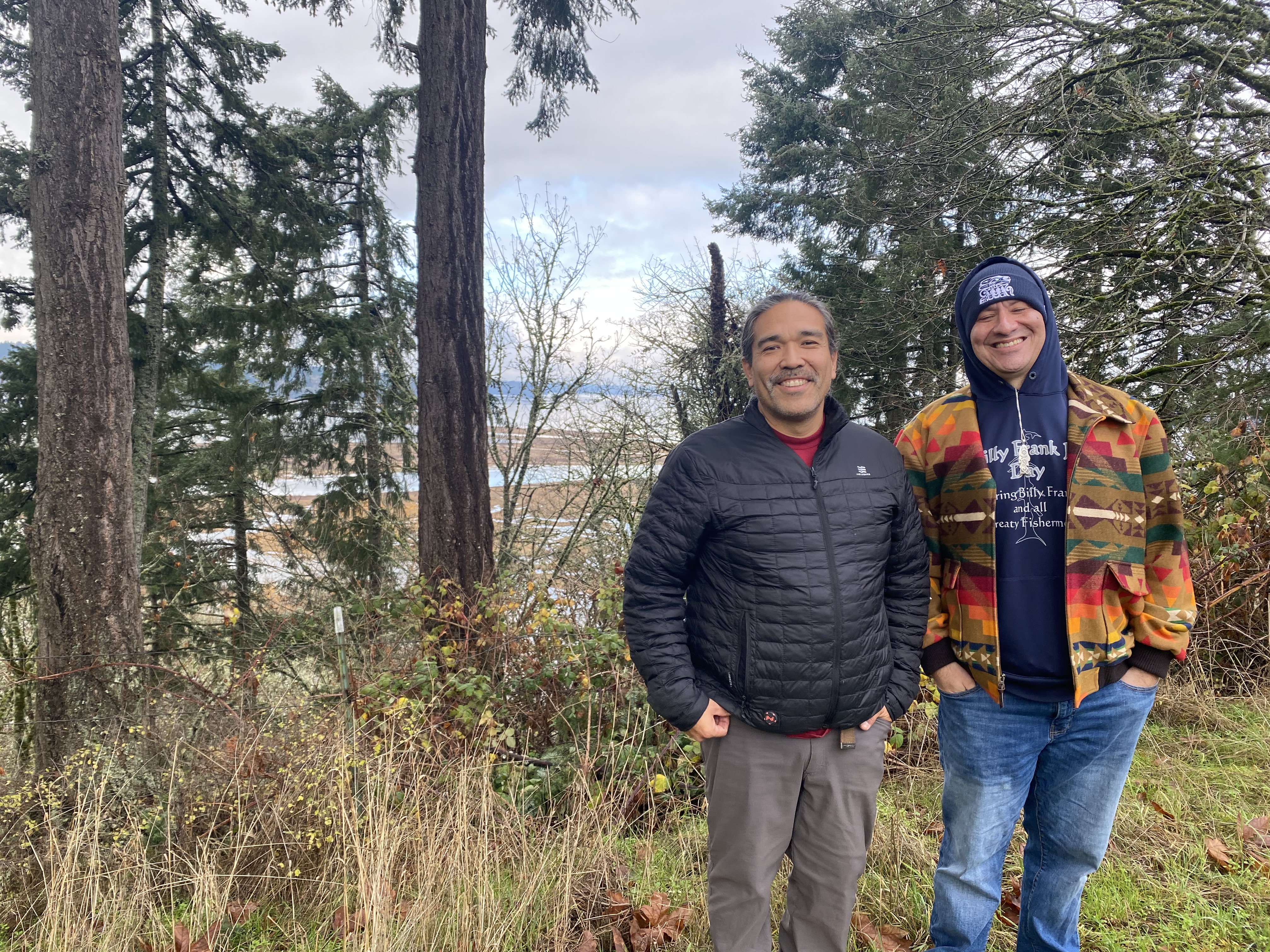
Hanford McCloud, left, and Wille Frank III, stand on a bluff above the Nisqually River delta that pours into the south Puget Sound. (Credit: Anna King / NWPB)
‘First food’ in trouble
Salmon is called a “first food,” that means eating it is a sacred act for many Northwest tribes. Joyce’s son, Hanford McCloud, said there aren’t a lot of fish left to teach Nisqually children about their culture.
“I don’t want to be responsible, to show salmon on a PDF to my grandkids,” said Hanford McCloud.
What’s good for the people and good for the environment, is good for the salmon, said Willie Frank III. The son of the late Billy Frank Jr. said the Nisqually people used to fish seven months of the year. Now it’s down to about seven days.
“So when you talk about spiritually, you talk about religion, you talk about what the salmon mean to us,” said Frank III. “You know it‘s like if you were only able to go to church seven or eight days out of the year. How would you feel if that was kind of your main religion?”
Frank III said that disconnect between the salmon and the people is showing up in life, and the youth.
“You know we’re off balance a bit because of, you know, the environment and the resources that we’re not protecting like we should as humans,” Frank III said.
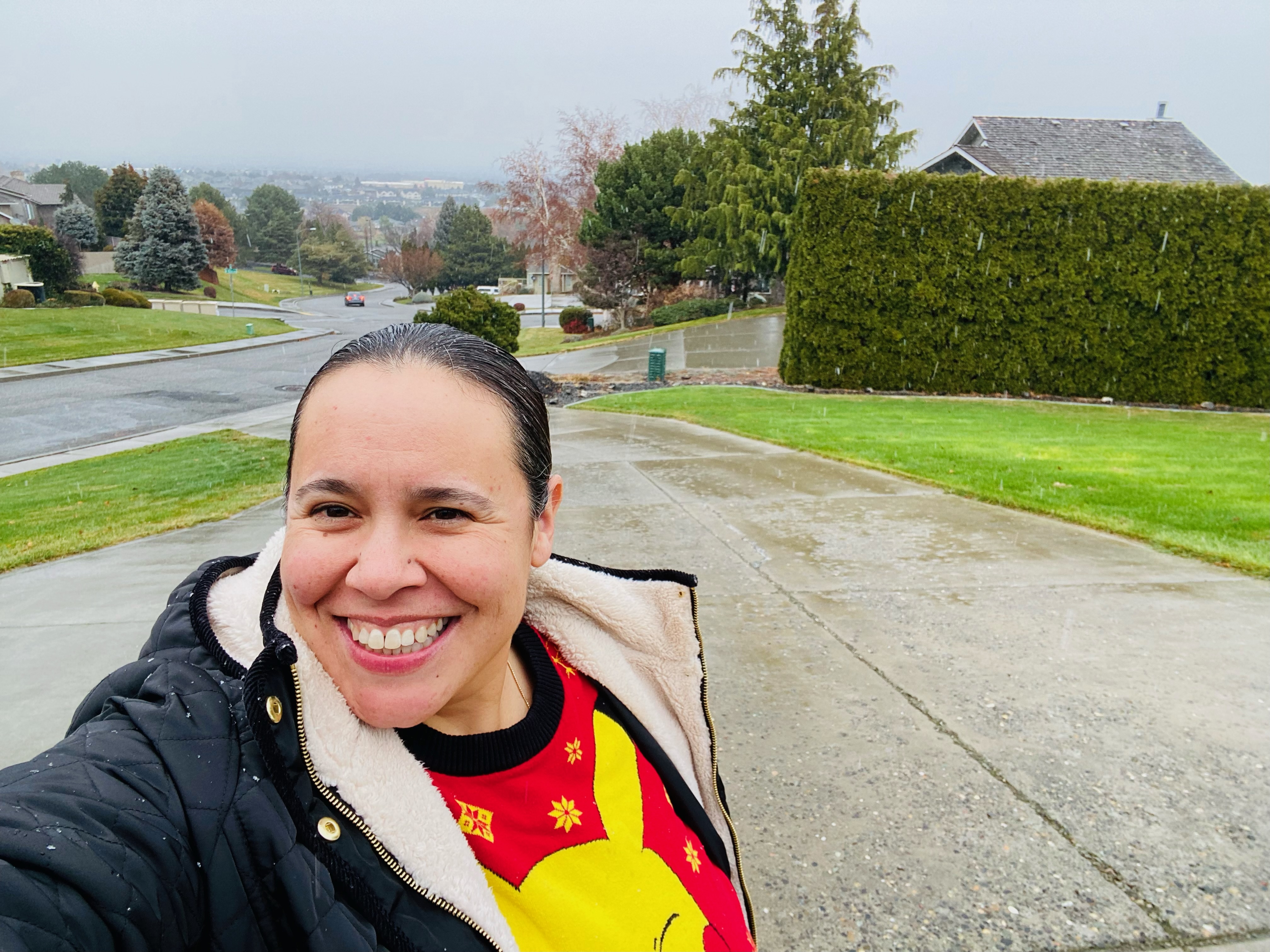
Malena Fairlight Pinkham said salmon ‘tastes like time.’ They are a member of the Confederated Tribes of Grand Ronde and a lawyer. (Courtesy of: Malena Fairlight Pinkham)
‘Tastes like time’
Across the Cascades, Malena Fairlight Pinkham, is a lawyer and is enrolled with the Confederated Tribes of Grand Ronde.
They say for them, salmon is a 10,000 year old taste. It recalls their ancestors.
“It just tastes like time,” Malena Fairlight Pinkham said. “I can feel my descendants through the years, I can feel my ancestors. I can feel the things they went through. ”
Back at the Nisqually bonfire, some small bits of salmon will be offered to the fire.
Just earlier this month, determined chum salmon ran back into the Nisqually River at numbers not seen for nearly a decade. The tribe was able to have a fishery. McCloud will gift freshly-smoked chum to her grandchildren.
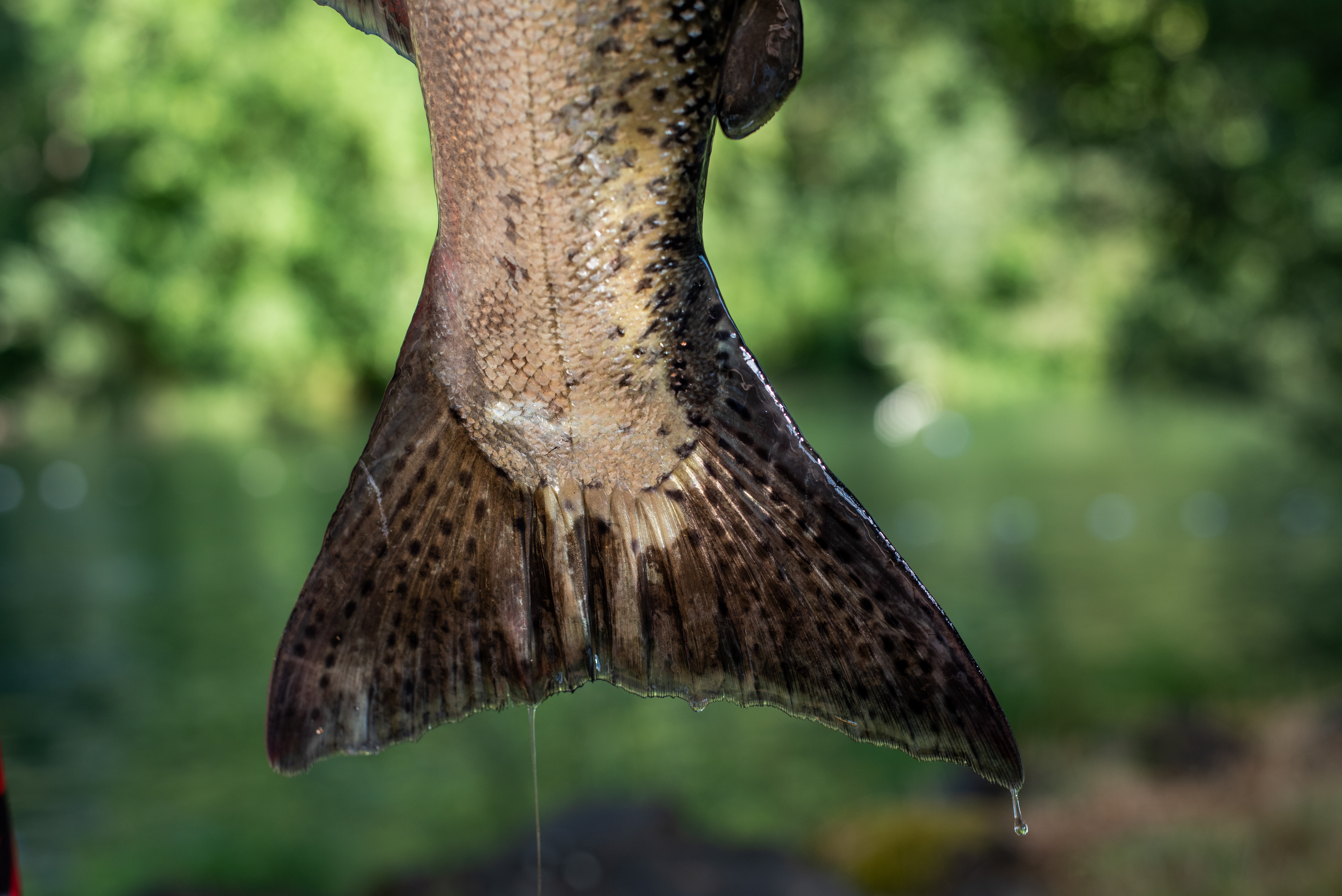
Willie Frank III holds a salmon he caught in late summer. Frank is the son of Billy Frank Jr., a famous Indigenous fishing rights advocate who was jailed by the state around 50 times while fishing. (Credit: Annie Warren / NWPB)
















